Aftermath
The funerals for Clanton and the McLaurys (who were relatively wealthy men) were the largest ever seen in Tombstone, drawing over 2,000 people. The fear of the Cowboys caused many Tombstone residents and businesses to reconsider their calls for the mass killing of Cowboys. Although rowdy, the Cowboys brought substantial business into Tombstone.
The fear of Cowboy retribution and the potential loss of investors because of the negative publicity in large cities such as San Francisco started to turn the opinion somewhat against the Earps and Holliday. Stories that Ike Clanton and Tom McLaury were unarmed, and that Billy Clanton and Tom McLaury even threw up their hands before the shooting, now began to make the rounds. Soon, another Clanton brother (Phineas “Fin” Clanton) had arrived in town, and some began to claim that the Earps and Holliday had committed murder, instead of enforcing the law.
The Spicer hearing
After the gunfight, Wyatt Earp and Doc Holliday (the two men not formally employed as law officers, and the two least wounded) were charged with murder. After extensive testimony at the preliminary hearing to decide if there was enough evidence to bind the men over for trial, the presiding Justice of the Peace Wells Spicer ruled that there was not enough evidence to indict the men. Two weeks later, a grand jury followed Spicer’s finding, and also refused to indict. Spicer, in his ruling, criticized City Marshal Virgil Earp for using Wyatt and Doc as backup temporary deputies, but not for using Morgan, who had already been wearing a City Marshal badge for nine days. However, it was noted that if Wyatt and Holliday had not backed up Marshal Earp, then he would have faced even more overwhelming odds than he had, and could not possibly have survived.
The participants in later history
 A few weeks following the grand jury refusal to indict, Virgil Earp was shot by hidden assailants from an unused building at night – a wound causing him complete loss of the use of his left arm. Three months later Morgan Earp was murdered by a shot in the back in Tombstone by men shooting from a dark alley.
A few weeks following the grand jury refusal to indict, Virgil Earp was shot by hidden assailants from an unused building at night – a wound causing him complete loss of the use of his left arm. Three months later Morgan Earp was murdered by a shot in the back in Tombstone by men shooting from a dark alley.
After these incidents, Wyatt, accompanied by Doc Holliday and several other friends, undertook what has later been called the Earp vendetta ride in which they tracked down and killed the men whom they believed had been responsible for these acts. After the vendetta ride, Wyatt and Doc left the Arizona Territory in April, 1882 and parted company, although they remained in contact.
Billy Claiborne was killed in a gunfight in Tombstone in late 1882, by gunman Franklin Leslie.
Ike Clanton was caught cattle rustling in 1887, and shot dead by lawmen while resisting arrest.
 Later in 1887, just over six years from the time of the O.K. fight, Doc Holliday died of tuberculosis in Glenwood Springs, Colorado, aged 36.
Later in 1887, just over six years from the time of the O.K. fight, Doc Holliday died of tuberculosis in Glenwood Springs, Colorado, aged 36.
Virgil Earp served as the “Town Marshal,” hired by the Southern Pacific RR, in Colton, California. He lived without the use of his arm, although continued as a lawman in California, and died of pneumonia at age 62 in 1905, still on the job as a peace officer.
Johnny Behan failed even to be re-nominated by his own party for the sheriff race in 1882, and never again worked as a lawman, spending the rest of his life at various government jobs, dying in Tucson of natural causes at age 67 in 1912.
Wyatt Earp, the last survivor of the fight, traveled across the western frontier for decades in the company of Josephine Marcus, working mostly as a gambler, and eventually died in Los Angeles of infection, in 1929, at the age of 80.
A legacy of questions
 The issue of fault at the O.K. Corral shooting has been hotly debated over the years. To this day, Pro-Earp followers view the gunfight as a struggle between “Law-and-order” against out-of-control Cowboys; Pro-Clanton/McLaury followers view it as a political vendetta and abuse of authority.
The issue of fault at the O.K. Corral shooting has been hotly debated over the years. To this day, Pro-Earp followers view the gunfight as a struggle between “Law-and-order” against out-of-control Cowboys; Pro-Clanton/McLaury followers view it as a political vendetta and abuse of authority.
A recent attempt to reinvestigate part of the matter aired on an episode of Discovery Channel’s Unsolved History using modern technology to re-enact the shotgun shooting which was part of the incident. However, the re-enactment did not use 19th century period technology (a late 19th century shotgun messenger type short shotgun, brass cases, black powder). The episode concluded that Doc Holliday may have triggered the fight by cocking both barrels of his shotgun, but was likely not the first shooter.
In April 2010, original transcripts of witness statements were rediscovered in Bisbee, Arizona, and are currently being preserved and digitized. Photocopies of these documents have been available to researchers since 1960, and new scans of them will be made available for public viewing online.

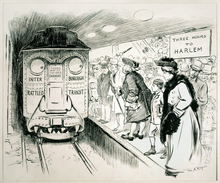 While London boasts the world’s oldest underground train network (opened in 1863) and Boston built the first subway in the United States in 1897, the New York City subway soon became the largest American system. The first line, operated by the Interborough Rapid Transit Company (IRT), traveled 9.1 miles through 28 stations. Running from City Hall in lower Manhattan to Grand Central Terminal in midtown, and then heading west along 42nd Street to Times Square, the line finished by zipping north, all the way to 145th Street and Broadway in Harlem. On opening day, Mayor McClellan so enjoyed his stint as engineer that he stayed at the controls all the way from City Hall to 103rd Street.
While London boasts the world’s oldest underground train network (opened in 1863) and Boston built the first subway in the United States in 1897, the New York City subway soon became the largest American system. The first line, operated by the Interborough Rapid Transit Company (IRT), traveled 9.1 miles through 28 stations. Running from City Hall in lower Manhattan to Grand Central Terminal in midtown, and then heading west along 42nd Street to Times Square, the line finished by zipping north, all the way to 145th Street and Broadway in Harlem. On opening day, Mayor McClellan so enjoyed his stint as engineer that he stayed at the controls all the way from City Hall to 103rd Street. 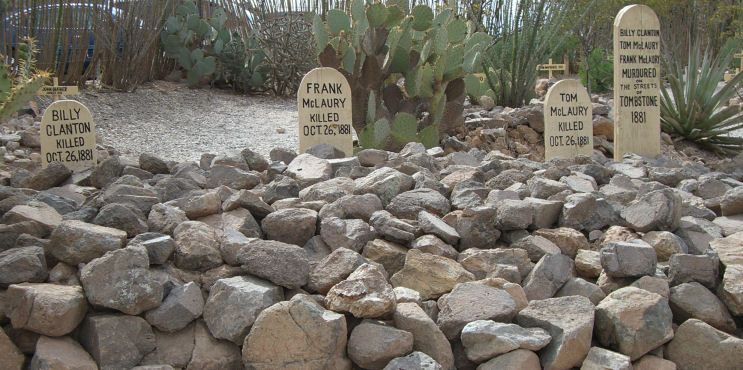
 A few weeks following the grand jury refusal to indict, Virgil Earp was shot by hidden assailants from an unused building at night – a wound causing him complete loss of the use of his left arm. Three months later Morgan Earp was murdered by a shot in the back in Tombstone by men shooting from a dark alley.
A few weeks following the grand jury refusal to indict, Virgil Earp was shot by hidden assailants from an unused building at night – a wound causing him complete loss of the use of his left arm. Three months later Morgan Earp was murdered by a shot in the back in Tombstone by men shooting from a dark alley. Later in 1887, just over six years from the time of the O.K. fight, Doc Holliday died of tuberculosis in Glenwood Springs, Colorado, aged 36.
Later in 1887, just over six years from the time of the O.K. fight, Doc Holliday died of tuberculosis in Glenwood Springs, Colorado, aged 36. The issue of fault at the O.K. Corral shooting has been hotly debated over the years. To this day, Pro-Earp followers view the gunfight as a struggle between “Law-and-order” against out-of-control Cowboys; Pro-Clanton/McLaury followers view it as a political vendetta and abuse of authority.
The issue of fault at the O.K. Corral shooting has been hotly debated over the years. To this day, Pro-Earp followers view the gunfight as a struggle between “Law-and-order” against out-of-control Cowboys; Pro-Clanton/McLaury followers view it as a political vendetta and abuse of authority. Despite the anger that the American public felt towards the United Kingdom after the British Parliament established the Coercive Acts, called the
Despite the anger that the American public felt towards the United Kingdom after the British Parliament established the Coercive Acts, called the 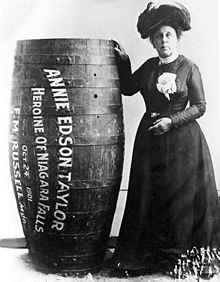 Desiring to secure her later years financially, she decided she would be the
Desiring to secure her later years financially, she decided she would be the  According to the official records of the Army Graves Registration Service deposited in the U.S. National Archives in Washington, four bodies were transported to Chalons from the cemeteries of Aisne-Marne, Somme, Meuse-Argonne and Saint-Mihiel. All were great battlegrounds, and the latter two regions were the sites of two offensive operations in which American troops took a leading role in the decisive summer and fall of 1918. As the service records stated, the identity of the bodies was completely unknown: “The original records showing the internment of these bodies were searched and the four bodies selected represented the remains of soldiers of which there was absolutely no indication as to name, rank, organization or date of death.”
According to the official records of the Army Graves Registration Service deposited in the U.S. National Archives in Washington, four bodies were transported to Chalons from the cemeteries of Aisne-Marne, Somme, Meuse-Argonne and Saint-Mihiel. All were great battlegrounds, and the latter two regions were the sites of two offensive operations in which American troops took a leading role in the decisive summer and fall of 1918. As the service records stated, the identity of the bodies was completely unknown: “The original records showing the internment of these bodies were searched and the four bodies selected represented the remains of soldiers of which there was absolutely no indication as to name, rank, organization or date of death.” Bearing the inscription “An Unknown American who gave his life in the World War,” the chosen casket traveled to Paris and then to Le Havre, France, where it would board the cruiser Olympia for the voyage across the Atlantic. Once back in the United States, the Unknown Soldier was buried in Arlington National Cemetery, near Washington, D.C.
Bearing the inscription “An Unknown American who gave his life in the World War,” the chosen casket traveled to Paris and then to Le Havre, France, where it would board the cruiser Olympia for the voyage across the Atlantic. Once back in the United States, the Unknown Soldier was buried in Arlington National Cemetery, near Washington, D.C.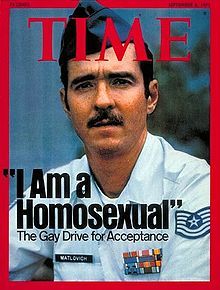
 On June 22, 1988, less than a month before his 45th birthday, Matlovich died of complications from HIV/AIDS beneath a large photo of Martin Luther King, Jr. His tombstone, meant to be a memorial to all gay veterans, does not bear his name. It reads, “When I was in the military, they gave me a medal for killing two men and a discharge for loving one.” Matlovich’s tombstone at Congressional Cemetery is on the same row as that of FBI Director
On June 22, 1988, less than a month before his 45th birthday, Matlovich died of complications from HIV/AIDS beneath a large photo of Martin Luther King, Jr. His tombstone, meant to be a memorial to all gay veterans, does not bear his name. It reads, “When I was in the military, they gave me a medal for killing two men and a discharge for loving one.” Matlovich’s tombstone at Congressional Cemetery is on the same row as that of FBI Director 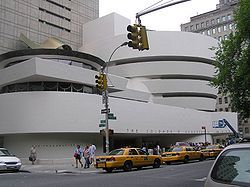
 In 1939, the Guggenheim Foundation’s first museum, “The Museum of Non-Objective Painting”, opened in rented quarters at 24 East Fifty-Fourth Street in New York and showcased art by early modernists such as
In 1939, the Guggenheim Foundation’s first museum, “The Museum of Non-Objective Painting”, opened in rented quarters at 24 East Fifty-Fourth Street in New York and showcased art by early modernists such as  Internally, the viewing gallery forms a gentle helical spiral from the main level up to the top of the building. Paintings are displayed along the walls of the spiral and also in exhibition space found at annex levels along the way.
Internally, the viewing gallery forms a gentle helical spiral from the main level up to the top of the building. Paintings are displayed along the walls of the spiral and also in exhibition space found at annex levels along the way.

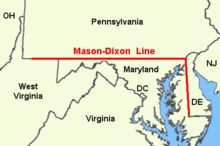 Charles Mason and Jeremiah Dixon complete their survey of the boundary between the colonies of Pennsylvania and Maryland as well as areas that would eventually become the states of Delaware and West Virginia. The Penn and Calvert families had hired Mason and Dixon, English surveyors, to settle their dispute over the boundary between their two proprietary colonies, Pennsylvania and Maryland.
Charles Mason and Jeremiah Dixon complete their survey of the boundary between the colonies of Pennsylvania and Maryland as well as areas that would eventually become the states of Delaware and West Virginia. The Penn and Calvert families had hired Mason and Dixon, English surveyors, to settle their dispute over the boundary between their two proprietary colonies, Pennsylvania and Maryland. Congress, and a majority of the American public, had not been supportive of the Reagan administration’s efforts to topple the Sandinista government in Nicaragua. Reagan began a “secret war” to bring down the Nicaraguan government soon after taking office in 1981. Millions of dollars, training, and arms were funneled to the Contras (an armed force of Nicaraguan exiles intent on removing the leftist Nicaraguan regime) through the CIA. American involvement in the Contra movement soon became public, however, as did disturbing reports about the behavior of the Contra force. Charges were leveled in newspapers and in Congress that the Contras were little more than murderers and drug runners; rumors of corruption and payoffs were common. Congress steadily reduced U.S. assistance to the Contras, and in 1984 passed the second Boland Amendment prohibiting U.S. agencies from giving any aid to the group.
Congress, and a majority of the American public, had not been supportive of the Reagan administration’s efforts to topple the Sandinista government in Nicaragua. Reagan began a “secret war” to bring down the Nicaraguan government soon after taking office in 1981. Millions of dollars, training, and arms were funneled to the Contras (an armed force of Nicaraguan exiles intent on removing the leftist Nicaraguan regime) through the CIA. American involvement in the Contra movement soon became public, however, as did disturbing reports about the behavior of the Contra force. Charges were leveled in newspapers and in Congress that the Contras were little more than murderers and drug runners; rumors of corruption and payoffs were common. Congress steadily reduced U.S. assistance to the Contras, and in 1984 passed the second Boland Amendment prohibiting U.S. agencies from giving any aid to the group.